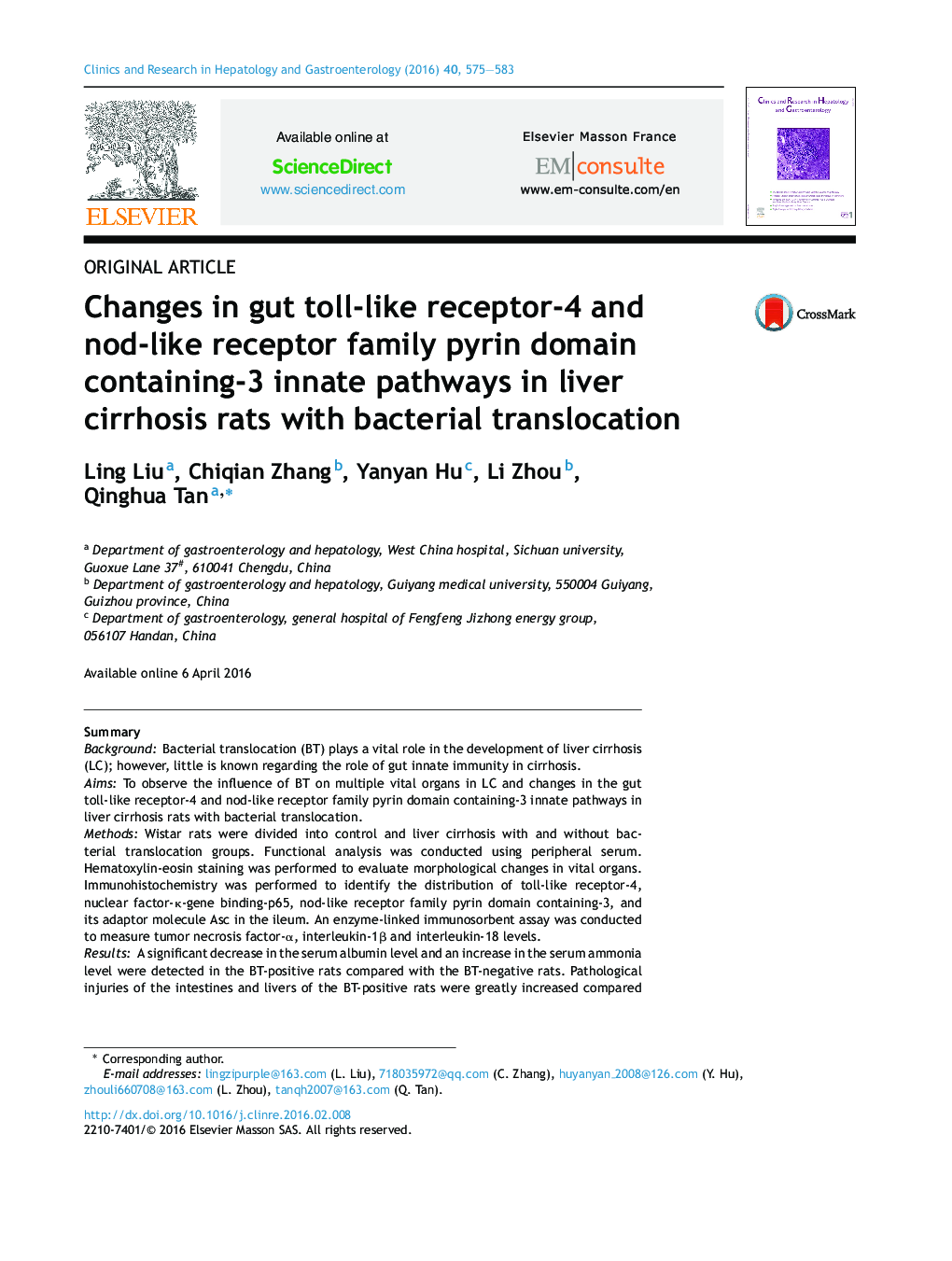| Article ID | Journal | Published Year | Pages | File Type |
|---|---|---|---|---|
| 5657764 | Clinics and Research in Hepatology and Gastroenterology | 2016 | 9 Pages |
SummaryBackgroundBacterial translocation (BT) plays a vital role in the development of liver cirrhosis (LC); however, little is known regarding the role of gut innate immunity in cirrhosis.AimsTo observe the influence of BT on multiple vital organs in LC and changes in the gut toll-like receptor-4 and nod-like receptor family pyrin domain containing-3 innate pathways in liver cirrhosis rats with bacterial translocation.MethodsWistar rats were divided into control and liver cirrhosis with and without bacterial translocation groups. Functional analysis was conducted using peripheral serum. Hematoxylin-eosin staining was performed to evaluate morphological changes in vital organs. Immunohistochemistry was performed to identify the distribution of toll-like receptor-4, nuclear factor-κ-gene binding-p65, nod-like receptor family pyrin domain containing-3, and its adaptor molecule Asc in the ileum. An enzyme-linked immunosorbent assay was conducted to measure tumor necrosis factor-α, interleukin-1β and interleukin-18 levels.ResultsA significant decrease in the serum albumin level and an increase in the serum ammonia level were detected in the BT-positive rats compared with the BT-negative rats. Pathological injuries of the intestines and livers of the BT-positive rats were greatly increased compared with the BT-negative rats. The cirrhotic rats with bacterial translocation exhibited increased expression of toll-like receptor-4, nuclear factor-κ-gene binding-p65, nod-like receptor family pyrin domain containing-3, Asc and tumor necrosis factor-α in the intestines compared with the negative group. There were no significant differences of interleukin-1β and interleukin-18 in the intestines between these two groups.ConclusionsExcessive activation of nuclear factor-κ-gene binding-p65/tumor necrosis factor-α and impaired activation of nod-like receptor family pyrin domain containing-3/Asc/interleukin-1β, interleukin-18 in the intestinal mucosa were observed in the cirrhotic rats with BT. Regulation of innate immunity in the intestinal mucosa may represent a novel strategy for the prevention and treatment of LC and its complications.
